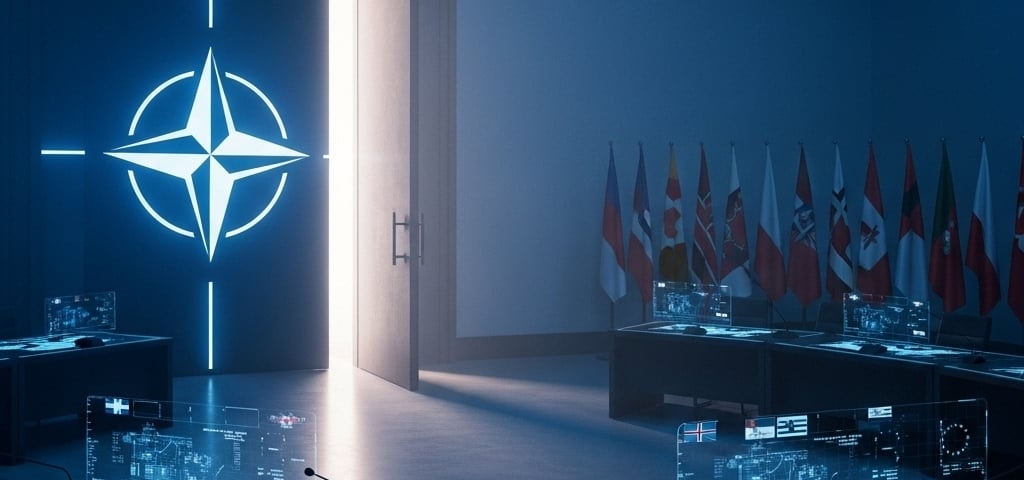Author: Megi Benia, UGSPN Affiliated Fellow
Against the backdrop of transformative developments in international security architecture, NATO convened a high-level summit in The Hague, where Allied leaders adopted important decisions to bolster the Alliance’s readiness posture.
For the first time in its history, NATO member states agreed to significantly increase defense spending from the previously established 2% of GDP target to 5% by 2035. According to the summit declaration, this enhanced defense budget will consist of two principal components: 1) 3.5% of annual GDP will be allocated to core defense needs and to meet the NATO Capability Targets; 2) 1.5% of GDP will be directed toward the protection of critical infrastructure, transportation, and communication networks, thus strengthening the Alliance’s civil preparedness, resilience, and defense industrial base.
Additionally, the Allies made major decisions aimed at modernizing the defense industrial base and adopted a new Rapid Adoption Action Plan, as well as an updated Defence Production Action Plan. At the NATO Defence Industry Forum, held alongside the Summit, the Alliance expanded its Multi Role Tanker Transport Capability by adding aircraft from Denmark and Sweden and bringing the total number to 12, as well as enhanced multilateral procurement initiatives for raw materials.
These efforts aim at strengthening NATO’s collective defense capabilities and meeting the requirements of Article 3 of the Washington Treaty. While Article 5 enshrines the principle of collective response in case of an armed attack on any member, Article 3 focuses on building national and Alliance-wide resilience and strengthening the capacity to deter or withstand hybrid or conventional aggression. Despite the years-long effort, including through the NATO-EU cooperation in this regard, the Alliance had struggled to fully operationalize this vital aspect of collective defense. The outcomes of the Hague Summit affirm a renewed consensus among Allies on the urgency of addressing existing and potential security challenges.
Herewith, it is worth mentioning that these outcomes were mostly shaped by the shifts in the U.S. foreign and security policy posture led by President Donald Trump’s administration and growing concerns over potential fractures in transatlantic unity. To mitigate these challenges and maintain robust U.S. engagement in the new European security architecture, European NATO leaders gave priority to increased defense spending and strengthening the defense industrial base to align with the Trump administration’s demands.
It is clear that NATO is preparing for a new global order that is gradually taking shape but is marked by uncertainty. Even more ambiguous is the future of NATO’s Open Door Policy, which has historically served as a cornerstone of the Alliance’s identity. The Hague Summit Declaration made no mention of Article 10 of the Washington Treaty, which grants any European state the right to aspire to NATO membership. NATO Secretary General Mark Rutte stated that “nothing has changed” on this front, but that is exactly the cause of the problem. While NATO adapts its approaches to defense and deterrence in line with the existing and potential threats from Russia, China, and unconventional domains, the Open Door Policy has been reduced to a matter of diplomatic rhetoric.
This shift is even more evident in the fact that for the first time in 17 years, NATO’s official documents omitted any reference to Georgia, and the Georgian side was not invited to the Summit unlike Ukraine. Even though, the paths of Georgia and Ukraine toward European and Euro-Atlantic membership have diverged since February 24, the Hague Summit officially formalized this reality. Yet this development is far more problematic for Georgia than for Ukraine.
At the post-summit press conference, Secretary General Rutte reaffirmed NATO’s continued support for Ukraine’s irreversible path to membership. In 2025 alone, NATO is expected to provide Ukraine with over €35 billion in military assistance and increase interoperability of Ukraine’s defense industrial base with relevant NATO institutions. Ukraine’s remarkable military achievements during the war, including the weakening of Russia’s naval presence in the Black Sea, incursions into Russian territory, and the temporary occupation of parts of Kursk Oblast, as well as the successful drone operation “Spider Web”, demonstrate Ukraine’s effective use of Western-supplied weaponry and its emerging role as a security provider for Europe. NATO’s rhetoric and actions toward Ukraine are now aligned with this new reality.
In contrast, the absence of any mention of Georgia or the Bucharest commitment must be understood in light of the current domestic political situation and the indefinite suspension of Georgia’s Euro-Atlantic integration. For years, Georgia had taken significant steps that positioned it ahead of other aspirant countries. It was regarded as a key player with a proven capacity to contribute meaningfully to Euro-Atlantic security. However, recent democratic backsliding and deviation from the Western trajectory have forced the Alliance to adjust its posture accordingly.
Faced with growing conventional and non-conventional security threats, including credible concerns about Russian aggression that now seems more imminent than during the Cold War, NATO must prioritize defense readiness and support aspirant states that demonstrate clear and unwavering commitment to the Alliance. In this context, NATO lacks the bandwidth to engage deeply with countries like Georgia that fail to take reciprocal steps toward alignment.
It is therefore reasonable to argue that NATO’s “Open Door Policy” is undergoing an implicit reassessment. Although the Allies remain formally committed to Article 10 of the Washington Treaty and no institutional changes are expected, the Alliance’s future approach toward aspirant countries is likely to become more differentiated and tailored to individual cases. Should this process also entail revisiting the Bucharest Summit decision, it could result in Georgia’s prolonged detachment from Euro-Atlantic structures, while Ukraine’s path to NATO would become truly irreversible.




